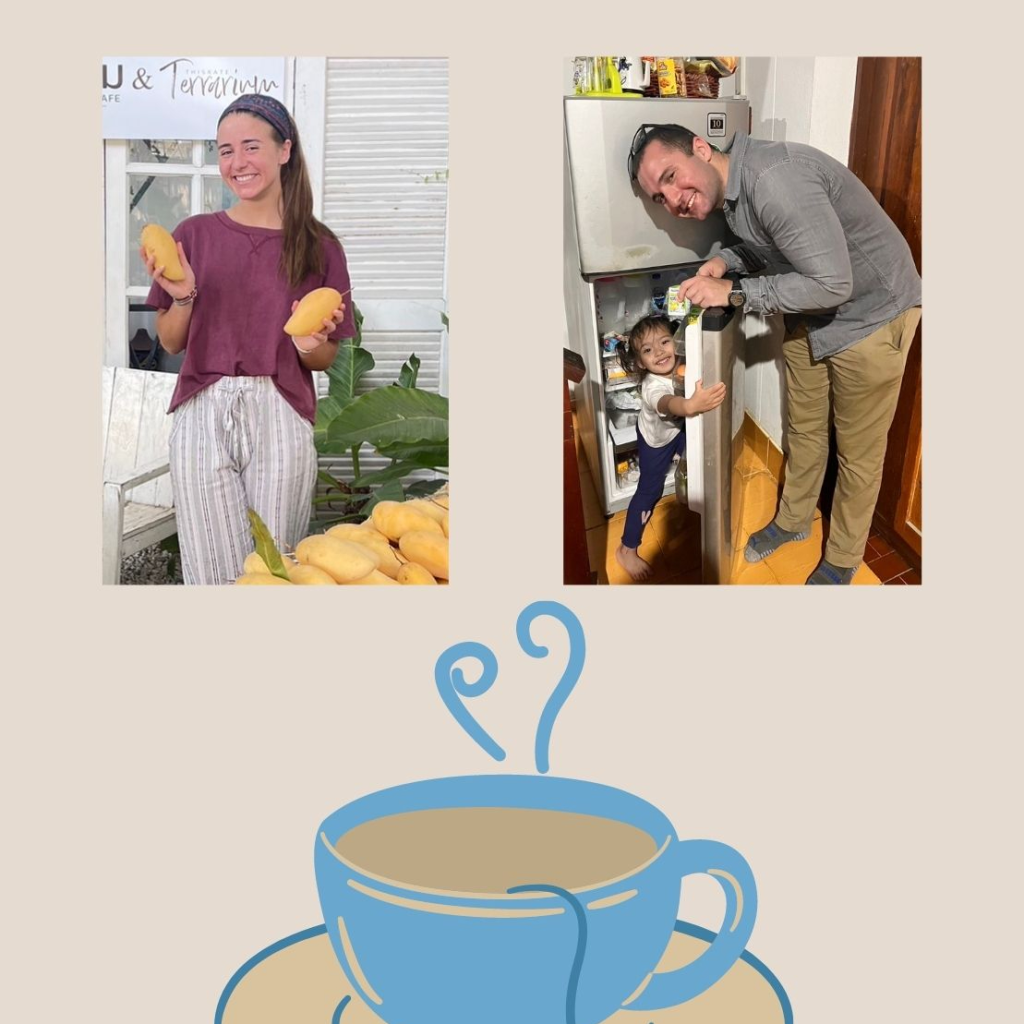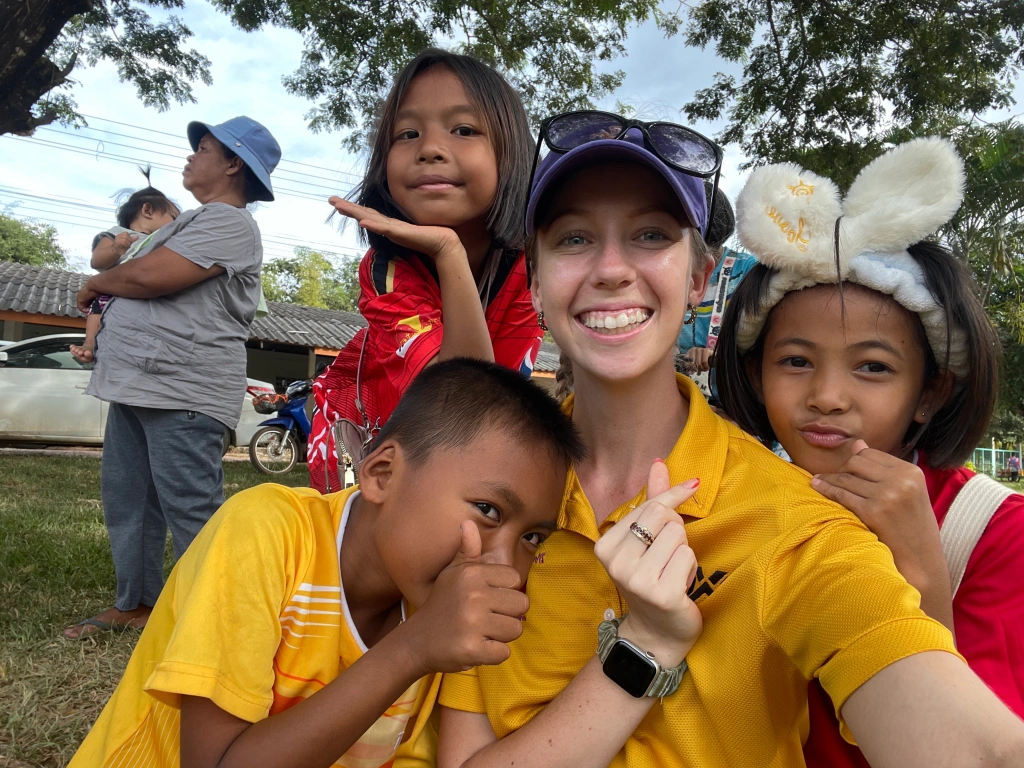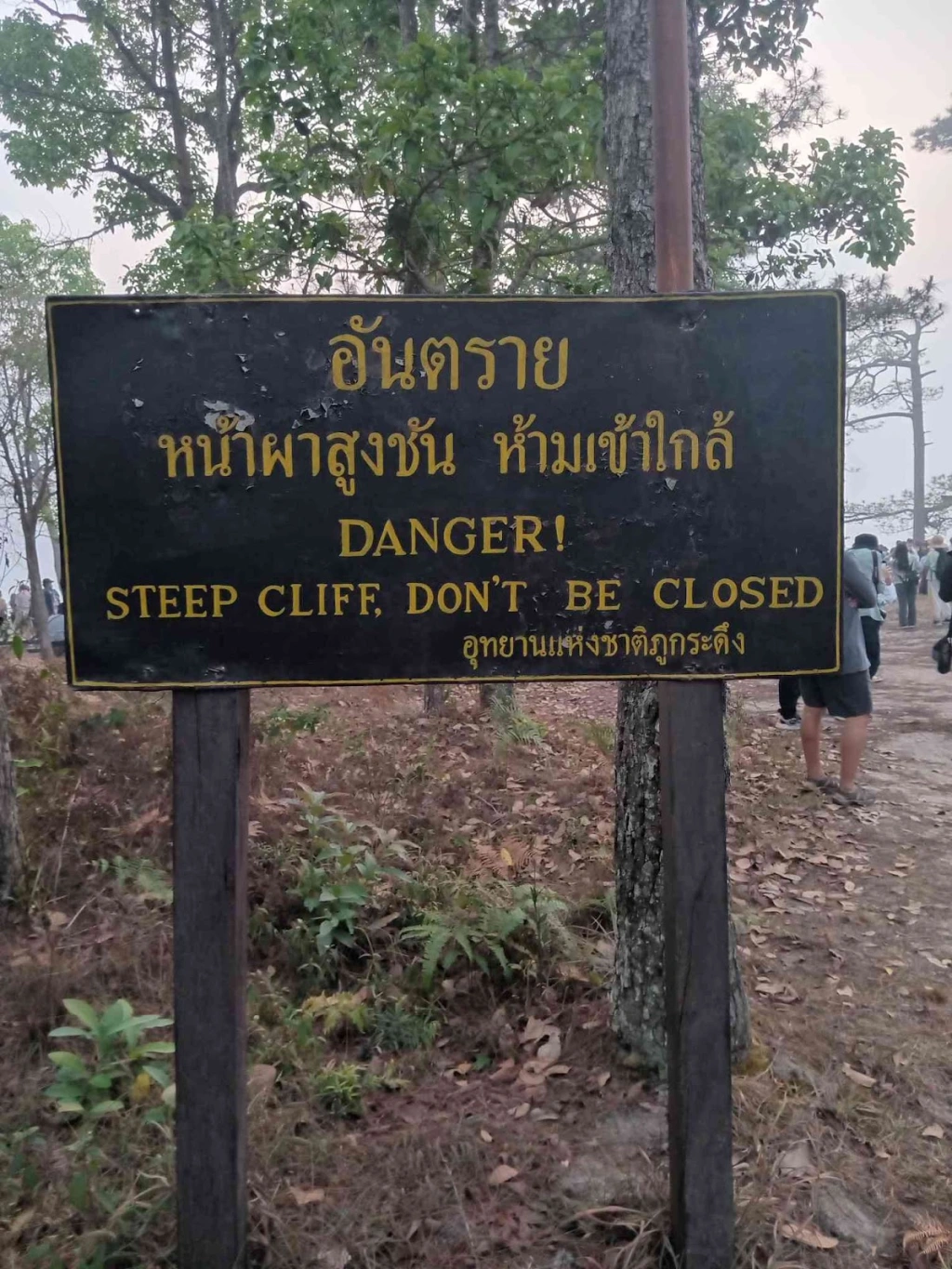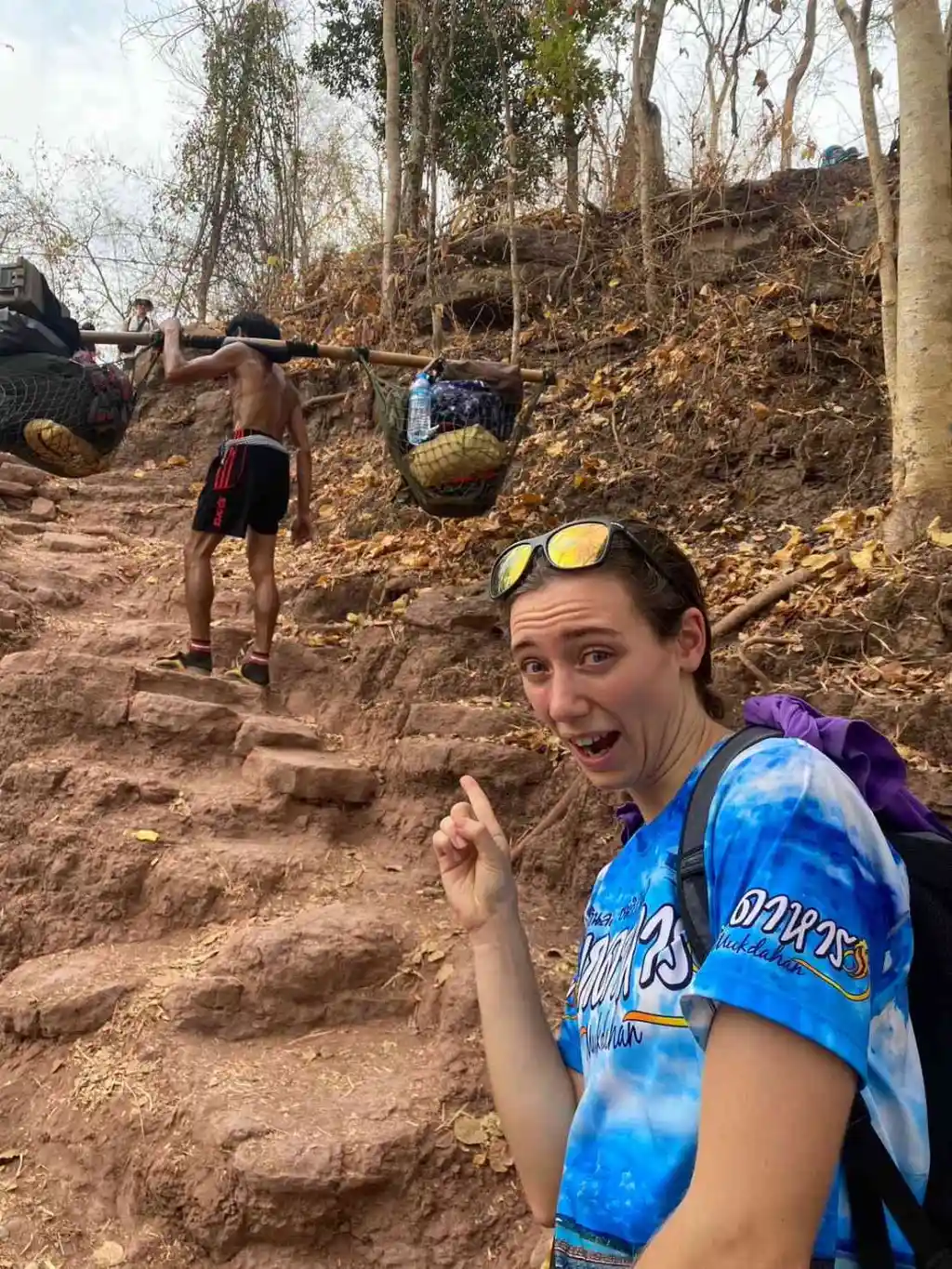
Kayla McCabe, 129 YinD
Well, April is here. Depending on where you are in your service this either means bpit term and the chance to travel or your first full month at site and the chance to learn about the joy that is VICA Day. Either way, your spending is most likely about to increase and I am here to offer you some tips that may help you avoid days (or weeks…) where your existence is entirely reliant on Mama and Nam Jaai.
SAVING
We are paid a “living wage” so saving our money can seem like an insurmountable challenge. Fortunately, we are here with generous volunteers and locals full of Nam Jaai. If you are smart with your purchases, ask enough questions, and are a good neighbor, you’ll be able to hold on to more baht than you think.
The overarching theme of this section is simple: don’t pay more than you need to, or don’t pay at all. PCVs and RPCVs most likely have lots of resources that they won’t mind sharing. Plan hard drive swaps for trainings or camps to switch up the movies you’re watching and ask about the Google drive of books! If e-readers aren’t your thing, the Bangkok office has shelves of books and volunteers are always adding more. There’s also way more than just books there. Check out the Hobbit Hole for sports equipment, clothes, school supplies, and who knows what else! Everything is well organized and, because a group just COSd, there’s a gold mine of stuff in there. Just don’t take anything that has another volunteer’s name on it, they already have dibs.
Peace Corps is also great about providing volunteers with a lot of necessities. Basic medications are supplied by PCMO, some bike repairs (if they are due to wear and tear) can be refunded, and the cost for stolen items will sometimes be reimbursed with a police report! The thing I’ve learned is if you’re not sure, ask. The American staff have all been volunteers so they understand what it’s like and the Thai staff does their best to learn about our site lives. All of them want to help us as much as they can. At the very least, they will help you find a way to replace things yourself in a cost effective way.
Peace Corps also has a Host Country Fund available to every volunteer. The Host Country Fund is 3,000 baht from the Thai government that a volunteer can use to fund a small project at any time in their service. If you want to cook American food for your students on Fourth of July or throw a Christmas party, don’t pay for it yourself! Email your Program Manager and they will help you get access to your Host Country Fund.
Outside of Peace Corps, there are other people who want to help you survive and thrive while you’re at site. Schools will often give you leftover lunch food if you ask (consider investing in Tupperware so as not to waste lots of plastic and Styrofoam) and the more often you go to the market, the better the seller’s will know you and the more likely they are to give you a better deal. Building relationships is an important part of a volunteer’s service- you can’t get anything done if you’re a virtual stranger to your community. These relationships can give way to larger social gatherings and more friends. Often, when community members hear that we came to our village alone and that we make very little, they want to help us. Let me be very clear: I am NOT suggesting you build relationships solely for the physical gifts but it is a fact that socializing, food, and giving is a central part of Thai culture. The more you participate in it, the more it comes back to you. Make snacks or buy fruit for a neighbor and maybe, when they hear about you eating popcorn for dinner for the third night in a row, they will return the favor.
The last group of people who could help you minimize spending is your people back in the States! If people want to send you care packages, obviously ask for favorite foods and farang comforts but also think about asking for toys and supplies you could use in your classroom. I have had all sorts of toys, stickers, and art supplies sent. Even though some of it may be available here, if a generous soul is willing to gift it to me for free, I am not going to argue. Just remember to send a thank you note or email!
There are a few other ways to cut back or keep track of the money you’re spending. ATMs will charge a withdrawal fee if you are outside of Bangkok (even at Bangkok Bank ATMs!) Because of this, it is a good idea to withdraw large sums of cash at once and store it in a safe place. This way, you are not paying multiple ATM fees in one month. When you reach a new VICA payment, put the baht you have leftover from the previous month in a separate spot and withdraw again. (We are paid about 10,000 baht each month, not including rent. Take out about that much every month and spend what you need to. If you have 2,000 baht left over at the end of the month, put it aside and spend from your new VICA payment.) You will be surprised how much you can save by limiting your spending to only the amount you are paid each month. Keeping track of your monthly spending can also help you see where you can cut costs. Making food from scratch is a great way to do this! Bread and jam are relatively easy and, if you have the space and the interest, try and plant a garden (or see if your house has any pre- existing vegetable or fruit plans)! Volunteers have a Line group dedicated to recipes that are totally possible to make here! Ask and we’ll add you!
SPENDING
The key to spending is similar to what I said above: do your research and don’t pay more than you need to. It may take some time and you may need to ask around but just about everything you can buy at a 7 can be found at one of your community’s corner stores. Shopping at these stores not only directly supports community members, but it is also much less expensive than a 7-11. Even if things are only 5-10 baht cheaper, that number will add up and you will realize you are saving quite a bit of money over time.
Other things you may be paying more than necessary for are your data plan and Spotify. When purchasing a data, consider your general access to Wi-Fi. Do you have at work, school, and home? If so, do you really need to paying for a weekly data plan? Consider only paying for data when you are traveling– this could save you over 300 baht a month! If you don’t have Wi-Fi at home and are paying for weekly data, switch to the monthly plan! AIS charges 89 baht for their weekly plan and 300 baht for their monthly plan! For those paying for data all the time, the monthly plan saves you over 60 baht a month! AIS has great customer service and will switch your plan if you give them a call.
Spotify Premium is essential to a lot of volunteers’ well- being (mine included) but paying $10 a month is a really good way to drain your bank account. But don’t stress because recently, Spotify Premium became available in Thailand for 139 baht/ month (about $4)! To get this rate you will need to cancel any existing Premium subscription you may have (this does NOT alter any of your playlists or saved music), switch the country on your profile to Thailand, and then repurchase Premium. There will be an option to pay by mobile, enter your phone number and you will receive a text confirmation. This method does take the money out of your Thai account, but it’s less than half of what you would be paying in the US!
If paying extra out of your Thai account doesn’t sound appealing or you don’t want to pay international ATM fees, I have a solution for that too! Using the bank account number found in your BKK bank book, you can open a PayPal account linked to your Thai bank account. If you have a PayPal account linked to your American bank account, you will be able to transfer money back and forth. This method requires two email addresses (I created a new Gmail solely for my Thai PayPal) but can be extremely helpful if you are low on baht or traveling to a country and are unsure if your BKK bank card will work!
Finally, speaking Thai is essential to our integration work at site but it can also help you gain favor with Thai people when traveling and ultimately save you from having to pay some fees. I’ve noticed taxi, tuk tuk, and song taew drivers will turn on their meter or give a more fair rate if you speak to them/ bargain with them in Thai. Additionally, some national parks, museums, and bigger wats (i.e. Doi Suthep, Chiang Mai) will waive the farang fee if you explain that you are a volunteer and show them your Thai ID card (the red one). It never hurts to ask, just remember to be polite and understand that some places will make you pay no matter what.
TRAVEL
Southeast Asia tends to be inexpensive for Western travelers but, when you’re making roughly $300 a month, that Airbnb your friends booked in Phuket can mean not eating for a week. Travel is still possible, though, as long as you’re willing to accept the “PCV lifestyle.” This means understanding that you won’t always be able to stay in the lap of luxury and farang food three times a day may not be possible. However, there are nice hostels all over the country and the local food is usually delicious! When planning a trip, use the PCV network, no one understands your budget as much as your fellow volunteers. The Wiki has a travel tab (https://sites.google.com/view/pcthailand/thailand-info/travel?authuser=0) with lodging and food suggestions and the PCV Asia Travel Network (https://www.facebook.com/groups/1533411540256726/) has members from all over the continent who are happy to help you find affordable options!
One of the most common options you will see are overnight travel. Flying is quick and easy, but it is also the most expensive option. Thailand has lots of overnight bus and train options that, while a little more time consuming, can significantly cut costs. You will also have an extra full day in a city without paying for lodging!
In addition to travel, you will want to save as much as you can on lodging. Good news! That PCV network can be incredible useful for finding places to stay! When planning a trip, consider where other people’s sites are. Would it be feasible to stay with another PCV for a few nights? Speaking from personal experience, visiting another volunteer’s site is not only inexpensive, it’s a ton of fun! We always talk about how unique everyone’s experience is but I think that doesn’t truly resonate until you see other sites and meet the counterparts and students who live there.
Your biggest takeaway from this section should be that planning is key when living on a stipend. Budgeting beforehand is a good way to avoid money stress and find potentially unnecessary expenses. When budgeting, keep in mind travel within the city you’re traveling. The cheapest hostels and Airbnbs tend to be farthest from the city center and, with the extra money you spend traveling to and from your place, it may be cheaper in the long run to pay a little more for a room that’s closer to what you want to see. Consider using a layout like this one when budgeting for your trip

If you find yourself in Bangkok during your travels, the following places give discounts to Peace Corps Volunteers (be prepared to show your volunteer ID if asked).
Lodging- ask at the desk when paying
Bed One Block Hostel
Bed Station Hostel
Monomer Hostel
MovyLodge Hostel
Food:
Feat Lab- 10% discount on food
Pizza Mania- use the coupon code Pcvth1
Finances can be stressful, especially when you are living on a stipend, not a salary. But we also have the opportunity to live in and explore a truly beautiful country. Be proactive with your saving and smart with your spending and you will be able to afford a lot more than you think!





Share your thoughts